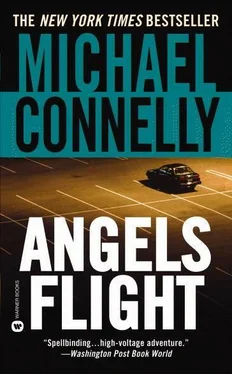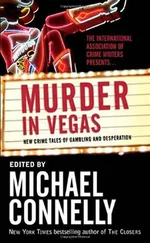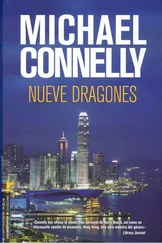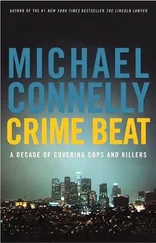Bosch ignored her statement. He looked at the boxes on the floor. For the first time he noticed a two-wheeled trolley leaning against the wall near the door. Entrenkin followed his eyes to it.
“I called the security guy and told him we needed to move some boxes. He brought it up.”
Bosch nodded.
“I guess I better get this stuff to my car. Do you still have the search warrant or did Miss Langwiser take it? I need to fill out the receipt.”
“I have it and I’ve already catalogued the files. You just need to sign it.”
Bosch nodded and walked over to the trolley. He remembered something and turned back to her.
“What about the file we were looking at when you came in this morning? With the photo in it.”
“What about it? It’s in the box there.”
“Well, I mean… uh… what do you think?”
“I don’t know what to think about it. If you’re asking me if I believed Howard Elias was involved with that woman I would say no.”
“We asked his wife today if it was possible he was having an affair and she said no, it was not possible.”
“I get your point. But I still think it’s impossible. Howard was a well-known man in this city. First of all, he would hardly have to pay for sex. And secondly, he was smart enough to know that he would be vulnerable to extortion from these people if they recognized him.”
“Then what was the file doing in his desk?”
“Like I said, I don’t know. It had to be part of a case but I don’t know which one. I looked at every file in the office today and didn’t find anything that connects to it.”
Bosch just nodded. His mind was already off the file and back on the mystery letters, the last one in particular. His take on it was that it was a warning to Elias. Someone had discovered that the lawyer was in possession of a dangerous piece of information. Bosch was feeling more certain that the investigation, the true investigation, should stem from that note.
“Do you mind if I put on the television now?” Entrenkin said. “It’s six. I want to watch the news.”
Bosch came out of his reverie.
“Sure. Turn it on.”
She moved to a large oak cabinet against the wall opposite the desk and opened the doors. Inside the cabinet were two shelves, each containing a television. Elias apparently liked to watch more than one TV at a time. Probably, Bosch guessed, so he had a better chance of catching all his appearances on newscasts.
Entrenkin hit the power on both sets. As the picture came into focus on the top set, Bosch saw a reporter standing in front of a strip shopping center in which three or four stores were ablaze. Several yards behind the reporter, firefighters worked to contain the blaze but it looked to Bosch as though the buildings were beyond being saved. They were already gutted.
“It’s happening,” he said.
“Not again,” Entrenkin said, her voice a scared plea.
BOSCH turned on KFWB on the car radio while driving into Hollywood. The radio reports were more conservative than the TV news at six. This was because the radio report contained only words, not images.
The bottom-line news was that there was a fire in a strip mall on Normandie, just a few blocks from the intersection of Florence, the intersection that was the flashpoint of the 1992 riots. At that moment it was the only fire burning in South L.A. and there was not yet any confirmation that the fire was an arson linked to protest or anger over the murder of Howard Elias. But every news channel that Bosch and Entrenkin had checked in the office was broadcasting from the mall. Flames filled the screens and the image projected was clear: Los Angeles was burning once again.
“Fucking TV,” he said. “Excuse my language.”
“What about TV?”
It was Carla Entrenkin. She had talked her way into being taken along for the interview with Harris. Bosch hadn’t put up much of a protest. He knew she might help put Harris at ease, if he knew who she was. Bosch knew it was important that Harris be willing to talk to them. He might be the only one to whom Howard Elias had confided the identity of Stacey Kincaid’s murderer.
“Overreacting as usual,” Bosch said. “One fire and they’re all there, showing the flames. You know what that does? That’s like throwing gasoline on it. It will spread now. People will see that in their living rooms and go outside to see what is happening. Groups will form, things will be said and people won’t be able to back down from their anger. One thing will lead to another and we’ll have our media-manufactured riot.”
“I give the people a little more credit than that,” Entrenkin responded. “They know not to trust the TV. Civil unrest occurs when the feelings of overwhelming powerlessness hit critical mass. It has nothing to do with television. It has to do with society not addressing the essential needs of overlooked people.”
Bosch noted that she called it civil unrest instead of rioting. He wondered if calling a riot a riot had become politically incorrect.
“It’s about hope, Detective,” she continued. “Most of the people in the minority communities of Los Angeles have no power, have no money, have no voice. They subsist on hope for these things. And Howard Elias was hope for many of them. A symbol of hope for a day when things will be equal, when their voice will be heard. Of a day when they need not fear the police officers in their community. When you take hope away it leaves a void. Some people fill that up with anger and with violence. To simply blame it on the media is wrong. It’s much deeper than that.”
Bosch nodded.
“I understand,” he said. “At least I think I do. But all I’m saying is the media don’t help any by exaggerating things.”
Entrenkin now nodded his point.
“Somebody once called the media the merchants of chaos.”
“Yeah, well, they got that right.”
“It was Spiro Agnew. Right before he resigned.”
Bosch had no answer for that and decided to drop the conversation. He got his cell phone out of the charger on the floor between the seats and called his home. There was no answer except for the machine and he left a message asking Eleanor to call him. He tried not to show outwardly that he was upset. He called information and got the number for the Hollywood Park poker room again. He called the number, asked for Jardine, the security man, and he was transferred through.
“This is Jardine.”
“This is Detective Bosch from last night. I – ”
“She never showed up, pal. At least not on my wa – ”
“You can save it, pal. She told me that you and she go back to the Flamingo. I understand what you did and it’s cool. But I know she’s back there now and I want you to give her a message. Tell her to call me on my cell phone as soon as she takes a break. Tell her it’s an emergency. You got that, Mister Jardine?”
Bosch stressed the word Mister so that maybe Jardine would realize he was making a mistake screwing with the LAPD.
“Yeah,” Jardine said. “I got it.”
“Good.”
Bosch clicked off.
“You know what I remember most about ’ninety-two?” Entrenkin said. “One image. A photo that was in the Times. The caption was something like ‘Father and Son Looters’ and the picture showed a man leading his four-or five-year-old son out of the smashed-in door of a Kmart or something. And you know what each one was carrying, what they had looted?”
“What?”
“Each one had taken one of those Thigh-Master things. You know, that ridiculous exercise contraption that some television star from the ’eighties sold late at night on TV.”
Bosch shook his head at the inanity of her image.
“They saw it on TV and so they thought it was valuable,” he said. “Like Howard Elias.”
Читать дальше












